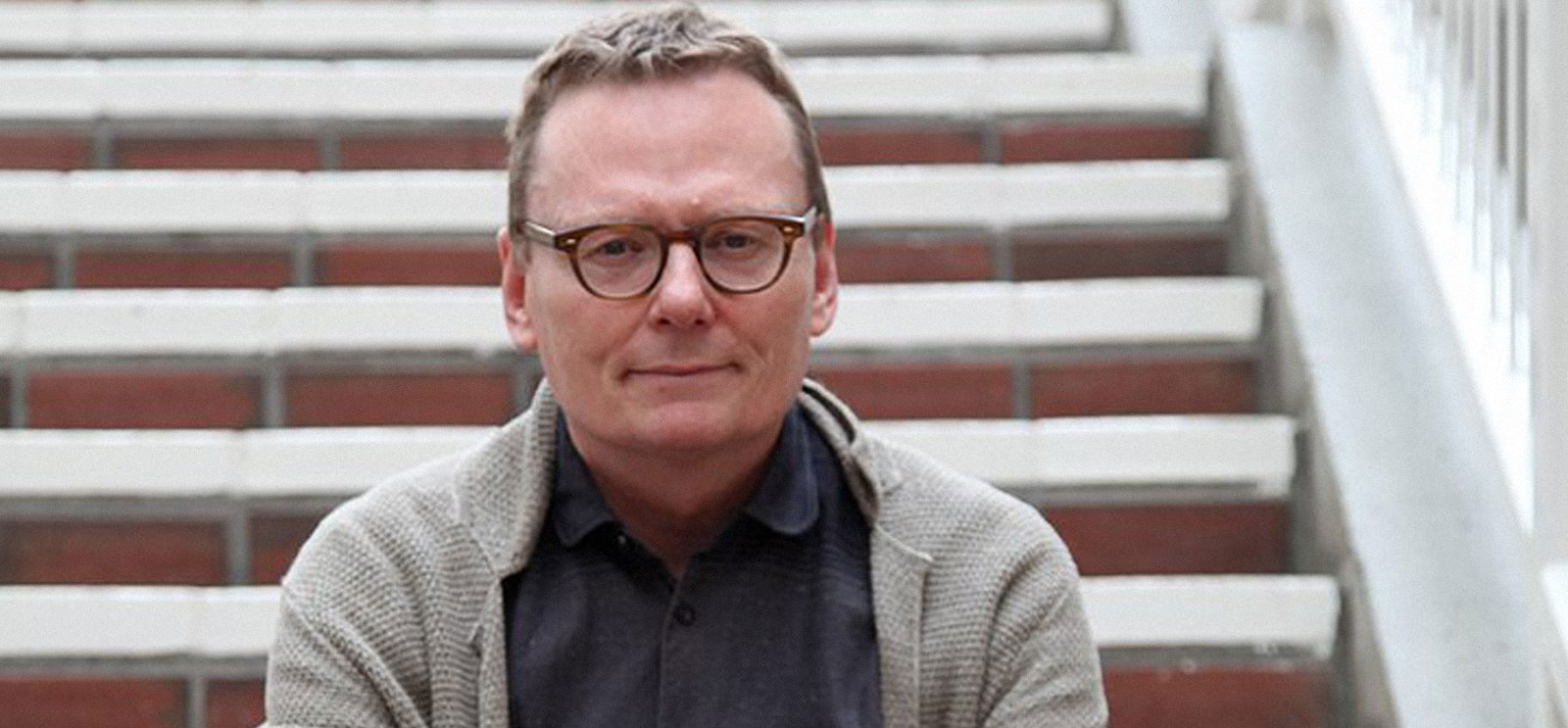
James Robinson will begin his appointment as the eighth active University Professor on July 1. (University of Chicago News Office)
An express commitment to free speech, a prehistoric achievement, a prestigious faculty appointment, fresh (water) ideas, the Crime Lab expands its reach, and more.
International eminence
James Robinson’s expertise extends from sub-Saharan Africa to Latin America. A political scientist, economist, and coauthor of the acclaimed 2012 book Why Nations Fail: The Origins of Power, Prosperity, and Poverty (Crown Business), Robinson has been appointed University Professor at Chicago Harris. When he begins his appointment July 1, Robinson will be the eighth active faculty member and 21st ever to become a University Professor, selected for eminence in their fields and potential to make a far-reaching impact.
Express commitment
Convened in July 2014 to articulate the University’s commitment to free and uninhibited debate, the Committee on Free Expression at the University of Chicago issued a report in January stating that “the University has a solemn responsibility not only to promote a lively and fearless freedom of debate and deliberation, but also to protect that freedom when others attempt to restrict it.” Chaired by Geoffrey R. Stone, JD’71, the Edward H. Levi Distinguished Service Professor of Law, the committee’s statement said, “It is not the proper role of the University to attempt to shield individuals from ideas and opinions they find unwelcome, disagreeable, or even deeply offensive.” Read the committee’s full report.
Prehistoric achievement
Geologist Susan Kidwell has received the 2015 Mary Clark Thompson Medal. The triennial award, established in 1921 by the National Academy of Sciences, honors important work in geology and paleontology. Kidwell, the William Rainey Harper Professor in Geophysical Sciences and the Committee on Evolutionary Biology, received the medal “for her groundbreaking work on fossil preservation that has transformed our view of how the history of life is encoded in the rock record.” Through geological fieldwork, combined with lab experiments and measurements of modern environments, Kidwell developed a strategy to extract the most reliable data from the fossil record.
Flow of ideas
A new professorship in the Institute for Molecular Engineering will be dedicated to creating solutions to the problem of fresh water scarcity. Supported by a gift from University trustee James Crown and Paula Crown, the professor will serve as director of the institute’s Water Research Initiative, enhancing the existing partnership on clean water technologies with Ben-Gurion University of the Negev. This collaboration, along with others the new professor will lead with Argonne National Laboratory and the Marine Biological Laboratory, share the goal of using molecular level research to make clean, fresh water more plentiful and less expensive by 2020.
Crime Lab’s jurisdiction expands
New York mayor Bill de Blasio says a new partnership with the University of Chicago Crime Lab will help “make New York City the leading laboratory in the country for criminal justice innovation.” Extending data-driven research done in Chicago to the nation’s largest city, Crime Lab New York will gather and analyze scientific evidence on programs to reduce crime, enhance public safety, and improve the fairness and efficiency of the criminal justice system. A $4.5 million grant from the Laura and John Arnold Foundation supports Crime Lab New York, which will be led by faculty director Jens Ludwig, the McCormick Foundation Professor of Social Service Administration, Law, and Public Policy.
Student life enriched
The South Campus Residence Hall has been named in honor of the late Renee Granville-Grossman, AB’63, in recognition of her $44 million bequest, the largest in University history. Renee Granville-Grossman Residential Commons, which opened in 2009, is home to more than 800 students in eight houses. Located south of the Midway Plaisance between Woodlawn and Ellis Avenues, the residence hall’s construction revived a plan that was never realized, dating to the 1920s and President Ernest Burton, for a south campus dormitory.
Supply and demand
During the summer of 2012, then second-year Daniel Yu was in rural Egypt and needed ibuprofen. A visit to a clinic set him on a course to become an internationally renowned entrepreneur. Yu, who is on leave from the College, learned from a pharmacist that many basic medications were either out of stock or expired, a problem he set out to solve with Reliefwatch, a start-up that uses cell phones to help clinics in developing countries track and manage their inventories. His company, which is now based at the Chicago Innovation Exchange on 53rd Street, earned Yu the Prince of Wales Young Sustainability Entrepreneurs Prize. Chosen from among 816 applicants from 88 countries, Yu received his award in January from Prince Charles at a London ceremony.
Healthy relationships
Cristal Thomas, MPP’01, former deputy governor of Illinois, has joined the University as vice president for community health engagement. In the new position, Thomas, who also serves as a senior adviser to vice president for civic engagement Derek R. B. Douglas, fosters relationships among South Side residents, the medical campus, and the University. Thomas previously served as regional director for the US Department of Health and Human Services and executive director of the Ohio Executive Medicaid Management Administration.
